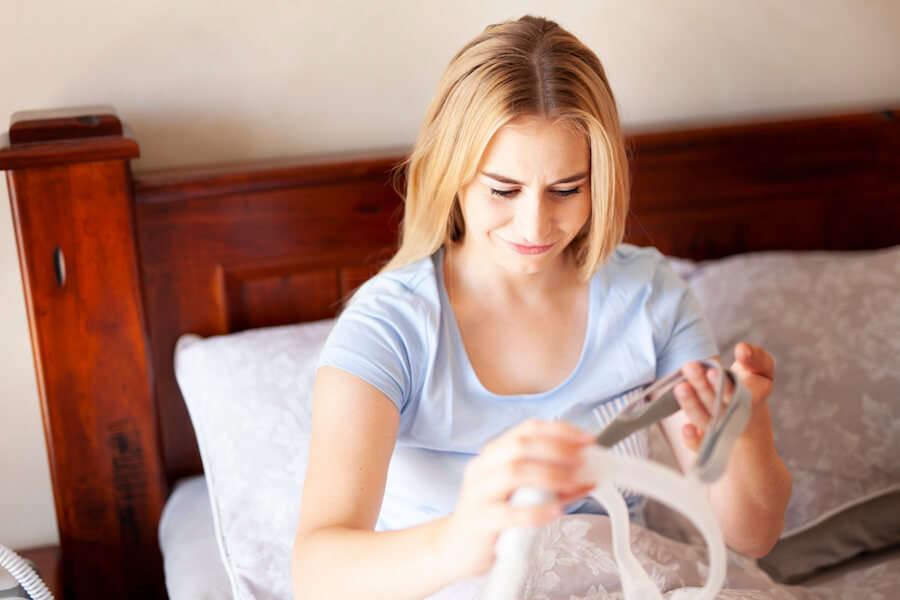
We often consider snoring as not much of a big deal, annoying at worst. But there’s a potentially dangerous disorder called sleep apnea which commonly has snoring as a symptom.
Sleep apnea is a disorder that obstructs the air passages. Still feeling exhausted even after a good night’s sleep is common for people with sleep apnea. Heart problems and high blood pressure can also be the result of more severe cases of sleep apnea.
Sleep Apnea Symptoms
Snoring is one of the primary symptoms of sleep apnea, but not everyone who snores will have sleep apnea (and not every case of sleep apnea will result in snoring). There are additional symptoms we look for including:
- Gasping for air while you’re sleeping.
- Waking up with a headache.
- A pause or stopping of your breathing pattern during sleep (this is not something you would notice and normally needs to be observed by someone else).
- Loud snoring (this is something that you may or may not observe on your own).
- Being sleepy during the day.
- Dry mouth when you wake up.
- Excessive irritability
- Hard time sleeping.
You may have sleep apnea if you are experiencing these symptoms and it’s probably time to schedule an appointment to have it checked out.
Sleep Apnea Comes in Two Kinds
Here’s what you need to know about the two different forms of sleep apnea:
Central sleep apnea takes place when the signals between your body and brain become interrupted.
Obstructive sleep apnea is more prevalent. When your throat muscles relax as you sleep, this type of apnea occurs. The tissues in the throat will obstruct the airways as the throat muscles relax.
It’s also possible to have Complex sleep apnea, which is a blend of the two kinds of sleep apnea.
Sleep Apnea Risk Factors
No one is immune from sleep apnea. The symptoms have even been seen in children. But you’re more likely to develop sleep apnea if you have the following risk factors:
Family history: You might be more likely to develop sleep apnea if somebody in your family has it.
Age: As you get older, you may be more likely to develop sleep apnea.
Smoking: According to most research, smokers are three times more likely to have a blocked airway than non-smokers.
Obesity: Fat deposits around the neck can dramatically increase the risk of sleep apnea.
Alcohol use: The muscles in your neck will loosen up when you drink alcohol. If you drink before you go to sleep, the muscles in your neck could become too relaxed and block the airway.
This is only a partial list. In addition, there are other risks that can increase your chances of developing sleep apnea. If you believe you are at risk of sleep apnea, you need to get tested.
Sleep Apnea Can’t be Self Diagnosed
You’re more likely to have sleep apnea the more symptoms you detect. But only your physician can make that determination. In many instances, a sleep study will be required to make a correct diagnosis.
Treatment to manage your symptoms can begin after a diagnosis is made. In many situations, this will mean the use of a CPAP machine. This machine applies a specific amount of air pressure to your airways, ensuring that your throat does not become obstructed.
The amount of rest you experience when you sleep will be significantly increased with CPAP and other therapies. You will be less stressed and have much more energy.